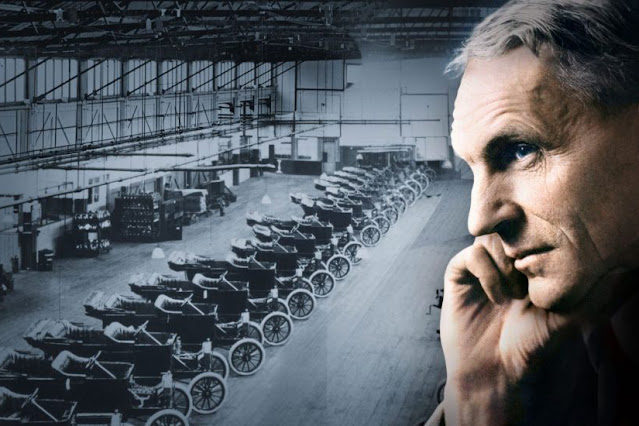HR in the integration period: Should Viet Nam enterprise pay higher wages in Henry Ford's Philosophy to “speed up”?
On January 5, 1914, Henry Ford – Founder Ford Motor company
started to pay double for the thousands of production workers from $2.38 to $5
/ day. By 1918, half of all cars in America were Model T's - A monument car of
Henry Ford. It's the result of quick labor productivity increase since
production line improvement after applying the philosophy paying higher wages
at that time.
From the story "Paying higher wages" of Henry Ford
It has been more than 100 years since the world economy is
the witness incredibly reforming in labor philosophy of the enterprise headed
by Henry Ford with the program "The Five Dollar Day" (5 dollars one
day). Following this new policy, Ford Motor Company had high paid more than 2 -
3 times compared to the general market at that time.
Ford has faced violently objections from colleagues, the other manufacturers, and sarcasm from the press. But in exchange, Ford Motor has introduced a great product line with great productivity.
Before that, in 1913, Henry Ford had to hire 40,000 new employees to keep only 13,000 people work. Since paying higher wages, Ford has pushed back the lazy and the disaffection. A number of people leave the reduction to 75% and labor productivity showed workers' efforts greatly increased.
Ford's new policy not only brings the sympathy and support of the workers for his business but also successfully complete the first expectations: Cutting cost, increasing employees. The cost of workers' wage increase is offset by increasing production and reducing costs due to training, recruitment.
Moreover, the wages increase also helped workers afford to buy Ford cars, contributed to increase sales of the company.
To Vietnam HR issues in the integration period
When Viet Nam signed the Trans-Pacific Partnership (TPP), participated in the ASEAN Economic Community (AEC), the signing of free trade agreements by the end of 2015 has opened many opportunities and many challenges for businesses in the country.
Integration means that attracting more foreign enterprises to invest in Vietnam. These enterprises have strong resources, they are well prepared for human resources. They attract skilled labor from neighboring businesses by paying higher remuneration level of the market. This situation leads to many Vietnamese businesses fall into the status more workers to leave to work in higher paying places.
In a survey of the workplace, employees want most at the end of 2014 (of 1 page Vietnam jobs) resulting Unilever Vietnam, Samsung's two leading groups demonstrate the attractiveness of foreign enterprises.
Should Vietnam enterprise apply "Paying higher wages" by Henry Ford's Philosophy?
Nowadays, many Viet Nam enterprises have updated the way salaries were are normally used effectively in the world such as 3p payments method, HAY method. However in the current context of Vietnam, Henry Ford's Philosophy paid an appropriate suggestion, some businesses have successfully applied this philosophy.
A story of the Telecommunications Business in Vietnam when hiring workers pull the cable as follows: These businesses hire workers only under 12/12 qualifications for simple work characteristics. However, an enterprise changed the way. They paid wages to their workers higher 2.5 times compared to competing businesses and hired only those collegial or higher qualifications. The company made provisions of 6.5 lines/ person/ day (normal companies require 2 lines/ person/ day). Because they have highly qualified and proficient, they give better advice and more enthusiastic with their customers. Apparently, this company paid double but workers try to work efficiently 3 times and more enthusiastic. This helps them cut staff costs, management costs and improve service quality. When productive labor are paid higher wages, they work better.
Enterprises need to remember "The human resources are the most important assets of an organization”.
If Viet Nam enterprises want to fair competition with foreign enterprises, the first Viet Nam companies should invest in human resource. Despite having machinery or equipment, it's always necessary to improving human resource.
100 years ago, when Henry Ford set out the new policy, he was extremely nervous. But finally, he makes the whole world know about an empire mighty automobile industry equal the bold and decisive.
“There is one rule for the industrialist and that is: Make the best quality of goods possible at the lowest cost possible, paying the highest wages possible.”
Henry Ford
Does it apply in Viet Nam as it did in the early 1900’s?
(Articles refer to some relevant documents)
P/S: This is an article I published in 2016. Maybe some of the information in the article is out of date. Hope you will find other useful information.


.jpg)

Nhận xét